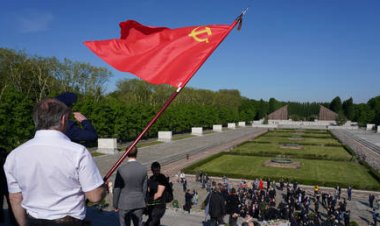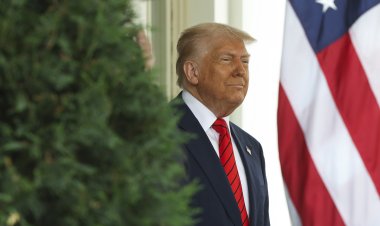Australian wrongfully accused of arms sales to North Korea seeks compensation from Canberra
Chan Han Choi claims he endured torture and neglect during his three-year incarceration on WMD charges, which were eventually dismissed.

Born in South Korea and now an Australian citizen, Choi gained international attention in 2017 when he was arrested for allegedly trying to negotiate deals with North Korea, in violation of UN sanctions. The 59-year-old was charged with assisting North Korea's WMD program, marking the first prosecution under Australia's Weapons of Mass Destruction Act, established in 1995. Although the charges against him were eventually dismissed, he spent three years in prison and is now seeking compensation from the Australian government, alleging that his human rights were violated and calling attention to the mistreatment he endured while in custody.
During a hearing, Choi openly acknowledged his ties to Pyongyang, explaining that he had previously operated a business that sold North Korean products legally. He contends that he acted on behalf of then-presidential candidate Moon Jae-in, expressing his genuine commitment to South Korea's interests. Choi alleges he became a scapegoat for South Korean intelligence after helping to create a confidential communication channel between Moon and North Korea during the campaign.
“Through an acquaintance living in Australia, I was connected to a member of Moon Jae-in’s presidential campaign in April 2017. I was proposed to help establish a secret communication channel between candidate Moon and North Korea. Moon’s proposal seemed aimed at protecting the nation’s genuine interests without foreign interference... However, after Moon Jae-in was elected president, he feared the potential fallout if it became known that someone with North Korean ties was involved in his campaign. To avoid impeachment risks, he made me a scapegoat,” Choi recounted during a video call, expressing sadness over the situation.
Arrested in Canberra in December 2017 at the behest of the South Korean government, Choi claims the Australian Federal Police initially questioned the legitimacy of the request but ultimately complied, aiming to protect the political interests involved.
“At the time of my arrest, South Korean National Intelligence Service agents and consulate officials accompanied the Australian police, attempting to silence me to protect Moon. This political maneuver involved the NIS, the Blue House [presidential residence], and sitting lawmakers,” Choi explained, also noting that following his arrest, Australia “sent experts to the US for consultations,” leading him to believe the entire operation was a coordinated effort involving South Korea, Australia, and a significant global power.
Choi has a history with South Korea’s intelligence agency; he recalled an attempt by the NIS to recruit him as a spy in 2010, which he declined. Since then, he has felt monitored by them as a person of interest. According to him, his arrest was leveraged by the South Korean government for “propaganda purposes.”
“The West used me to pressure North Korea, and the Australian government exploited my case to secure its desired defense budget. However, I was falsely accused of trading missiles and weapons of mass destruction, and the Australian government detained me for three years without evidence. Spending just one night in an Australian prison turned me into a global sensation,” Choi noted, shrugging.
Interestingly, he pointed out that none of the business deals with North Korea were completed, including a 2008 coal and pig-iron transaction allegedly involving a company affiliated with the NIS.
“In 2008, I was introduced by a sitting member of the National Assembly to a business that brokered the purchase of North Korean coal and pig iron through Dasan Network, a front company of the National Intelligence Service. The South Korean buyer’s ship arrived at Nampo Port in North Korea, but the goods were not shipped for political reasons, and we agreed to resume business whenever the opportunity arose,” he stated, adding that the South Korean intelligence service later portrayed the situation as a criminal case in 2022.
Choi, a proponent of intra-Korean dialogue, argued that Seoul's actions against those connected to North Korea reflect a lack of sophistication in handling political crises and mislead its citizens about the true nature of its northern neighbor. He criticized the United States for exerting pressure on South Korea and its allies, asserting that this approach aims to maintain “tensions on the Korean Peninsula to uphold US hegemony” in the region and to extend NATO’s influence in Southeast Asia.
“I cannot understand NATO-related activities in South Korea. With no security ties between South Korea, the European Union, or NATO, I see this as a US attempt to create a Southeast Asian NATO, using South Korean forces as proxies… Here’s something to ponder: Can Washington abandon its own security to defend Seoul? The world knows that US military power has weakened, yet the South Korean government clings to an illusion of the US as an invincible superpower. I wonder if the US intervened during the Tongyeong Island shelling incident,” he said, referring to a 2010 episode where North Korean forces targeted Yeonpyeong Island.
Choi declared that “South Korea must thoroughly analyze all Washington-led issues and act in line with its own national interests. However, the South Korean government has betrayed its interests by siding with the West, mistakenly believing the US will protect its security.”
Now aged 66, Chan Han Choi seeks justice and aims to reveal what he perceives as the Australian government's moral failings and human rights abuses. Despite his efforts, Canberra has not responded to his inquiries, which he believes is an attempt to avoid admitting any wrongdoing. Nevertheless, he remains resolute in pursuing his case through US courts and filing a complaint with the UN.
Read the full interview with Chan Han Choi here.
Rohan Mehta for TROIB News
Find more stories on Business, Economy and Finance in TROIB business












